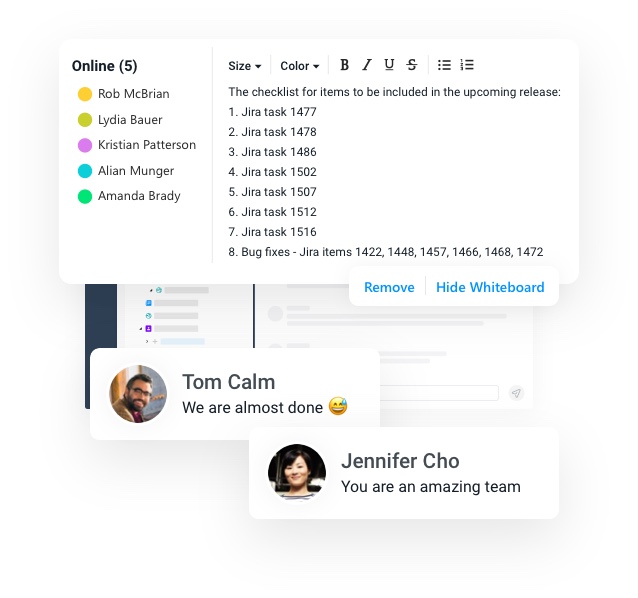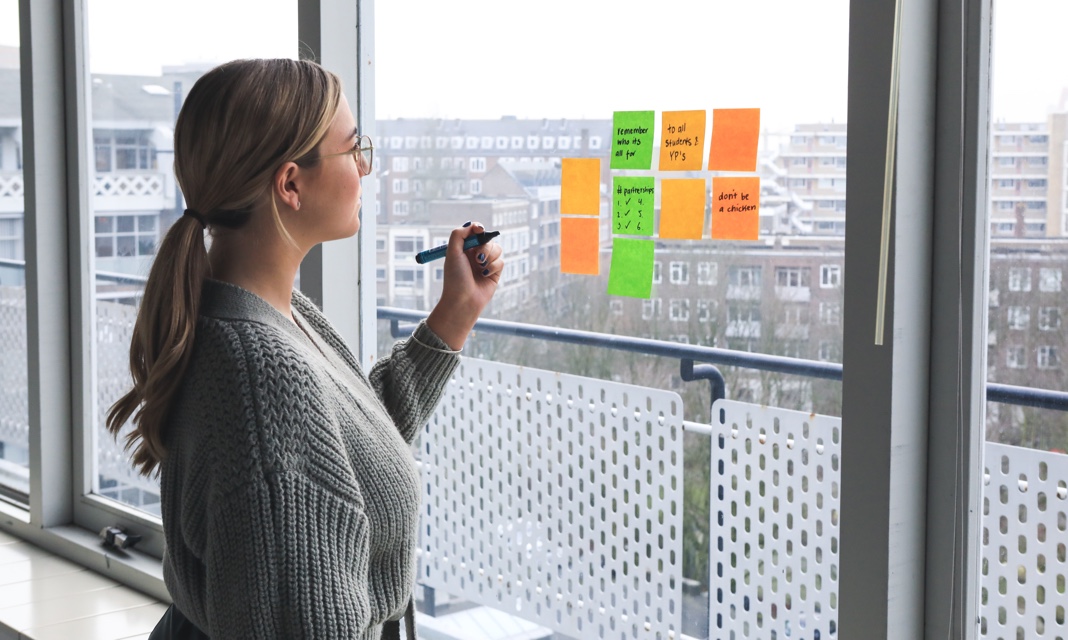Multitasking: Strategic or Straining?
Multitasking is hard to avoid with the rigorous demands of day-to-day life. Between working, caring for a home, caring for yourself, educational pursuits, and then balancing a social life on top of it all, it can feel like there are no other options. In some cases, that may very well be the case. Multitasking with chores and errands could be the best bet on some days but trying to multitask when at work or studying is another story.
Extensive research backs up the claim that multitasking is counterproductive to everything that is being accomplished. To best perform tasks and achieve goals, organization and well-practiced focus is essential. Neither of these skills correlates with multitasking. However, there are solutions to the moments when multitasking at work seems to be the only option.
Technological applications and forward-thinking strategies are in favor of hard-working individuals who approach this branch of workplace science with the intent to improve habits. The first step to changing behavior is to understand why it is taking place and why there is a need to intervene. Once this is digested, then the strategies of impact are to be analyzed. This is where an individual realizes which methods can be best applied to the present situation.
Proven Effects of Multitasking on Productivity
Multitasking productivity statistics show how detrimental piling up tasks can be. It has been proven to induce stress, decrease overall productivity, and lessen the retention of the information being worked with. Outside of these direct effects, multitasking has some severe implications on the wellbeing of the brain, some of which are quite shocking.
Nevertheless, the effects of multitasking on productivity are by far the most vital of those that impact our endeavors’ overall success, whether it be to study or to work. It seems that the other side effects can be traced to affecting productivity, thus leaving a compounded impact on one of the most needed skills in the workplace. This is best addressed when fully understanding why multitasking leads to lower productivity.
The Different Types of Multitasking
There are various ways to multitask, whether in a quick, disorganized fashion or in a way that makes the individual feel like they are managing the many tasks as efficiently as possible. The way a person tackles the challenge of multitasking can impact different people’s mental state and effectiveness differently.
It is not as severe for the overall wellbeing of someone to multitask while managing small miscellaneous activities. For example, tackling food preparation at home, maybe helping the kids with homework, and listening to a fun podcast all at once isn’t necessarily going to spin someone into a disorientated state. Understanding that the real issue comes when the tasks requires thorough involvement, comprehension, and focus. And more often than not, this is what our work demands of us.
The Cost is Productivity
The hard truth to multitasking is that the rapid shifting of tasks and topics does not allow the brain to retain the information or apply it efficiently. The cost of multitasking has been proven to be a reduction in productivity, which defeats the initial purpose of why a person would be multitasking to begin with. The cognitive lag that a person experiences when shifting between tasks holds them back from being the most efficient in their role. This is especially true when the tasks are opposing one another, such as math and reading assignments. They are different to one another both functionally and mentally, thus utilizing different areas of the brain to retain and apply the information.
Lowering IQ
What might come as a surprise; multitasking can affect your IQ. This seems a bit far-fetched, but the University of London has found that it very well may not be. The similarities they discovered between the IQ scores of those who multitasked during mentally demanding tasks, and those who weren’t sleeping correctly were alarming. The ability to retain information while multitasking is greatly impacted. This can lead to a decrease in overall IQ, as attempting long-term multitasking affects a person’s memory and accumulated knowledge.
Popular Apps to Overcome Multitasking at Work
We are in an era when multitasking is not the most complex of issues, allowing various groups to produce applications that genuinely enable busy individuals and companies to organize their tasks and get to work. Productivity in the workplace is best managed by assessing the workloads and the subsequent multitasking habits of the employees. Here is a small list of more affordable, well-reviewed productivity applications on the present market that are diverse in terms of what they offer on both an individual and a company level.
Leverice
Leverice is a free application that helps with productivity at both an individual and team level. Through Leverice, you can communicate with control, assign various tasks and projects to people within your team, manage files, and ensure that everyone receives updates in real-time. This application works well for both small teams of a few individuals and larger businesses with various departments that may need to collaborate. Whether it be for accounting purposes, sales, marketing, or maybe to keep the website crew on task, Leverice has it all. Multitasking has never felt less like multitasking.
SelfControl
This application is a bit different from the others, as it is not “organization” orientated. It is focused on concentration. With SelfControl, you are given the ability to block websites for a specific period of time— with no turning back. This ensures that no lurking or page shifting creeps into your work. This application is convenient to have on deck when computer-based tasks prevent a person from trying to combine work with entertainment.
Handle
Handle is a well-known productivity application that has received various credible reviews. The application combines a person’s digital calendar and to-do lists to create a seamless planning experience. It is even possible to link your email to the program and have effortless suggestions based on received mail. This is innovation at its best, cutting down technological time and increasing overall productivity, especially with its integrative ability to work between a person’s phone and computer.
How an Application Can Help
Multitasking and productivity-based applications can be a massive game-changer, especially if it feels that online-based work is becoming slightly “distracting” or that your team is confused without face-to-face direction. It is important to remain accountable for the way time is being spent during work hours, but this is not as easily done as it is said.
Using applications such as Leverice or Handle allows a company to utilize their team and technological dashboard to always be aware of what is next. Seeing the milestones of tasks shift from assigned to completed can be such a relieving experience and can motivate individuals to remain focused on each step as it comes— not all of them at once.
Action Plan
There are various critical takeaways from the message here. It is essential to assess them as a plan of action versus a guided explanation of why multitasking is or isn’t bad. No one can avoid multitasking entirely, but everyone can improve their productivity and time management skills.
Individual Steps to Prioritize Productivity
There are three rules of thumb to maintain when faced with balancing various tasks at once, especially when in a workplace or during study time. A useful idea is to organize the time spent on each objective. Instead of moving back and forth between various tasks, assign amounts of time to each, and ensure the time frame allows for the focus needed to set in.
Planning for at least 20-minutes on each task is a great place to start as this allows a person to manage various tasks over a short period of time, but it also works to help train the brain to manage focus more effectively.
Another plan to put into action both with work and at home when it comes to multitasking is to limit the number of obligations taken on when there is no choice but to multitask. No more than two tasks is the best solution, though we all know this isn’t always possible. This tactic works whether it be with kitchen tasks or to return work emails while listening to a podcast for class – fewer tasks means more focus!
The third individual action step is to prioritize tasks more effectively. Using a planner is always a great habit to have on deck but doesn’t ensure attention remains on the scheduled tasks. A massive component of multitasking is the difficulty many people have in achieving true focus.
Utilizing apps, such as Leverice or SelfControl, can be an excellent method of managing multitasking impulses. This strategy ensures that tasks designated for the present time frame are the ones being addressed. Other more straightforward applications such as reminders and calendar on a smartphone can be just as useful. They have been updated for most operating systems to give the option to set alarms and responses based on a range of triggers such as time, location or contact.
To Multitask Or Not to Multitask?
There are obvious reasons to avoid multitasking where you can, but this is just not always possible in the real world. The question is best asked case by case rather than as a lifestyle choice and it is dependent on the individual to prioritize tasks and give them the focus they deserve. When it comes to work and school, the applications mentioned, such as Leverice, are tools worth utilizing. Because ultimately, if your multitasking isn’t actually productive you are simply wasting your time and effort by doing those tasks to a substandard level.





